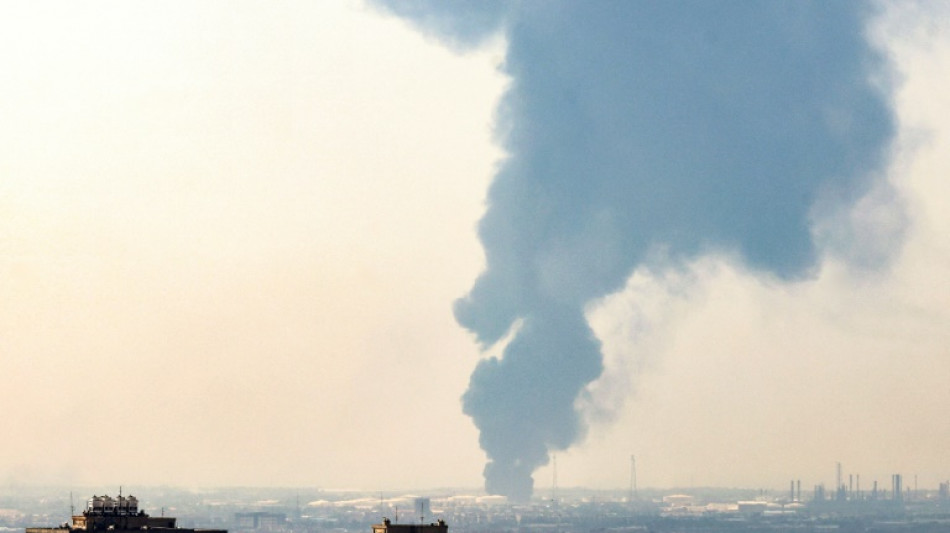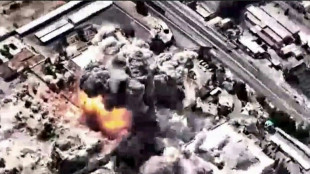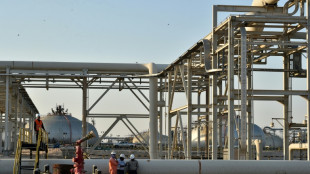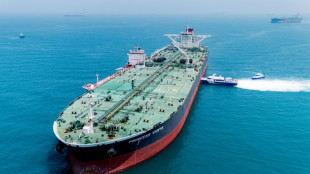

Oil dips, dollar firms after US strikes in Iran
Oil prices gave up most of their early gains on Monday and the dollar strengthened after the United States struck Iran's nuclear facilities at the weekend.
Asian markets mostly retreated while European bourses were marginally higher as traders wait to see how Tehran could respond.
"Everything hinges on Iran's response -- and whether it's a symbolic jab or a haymaker that knocks the Strait of Hormuz offline," said Stephen Innes at SPI Asset Management.
One option on the table would be to potentially create economic havoc by seeking to close the strategic Strait of Hormuz -- which carries one-fifth of global oil output.
Iran is the world's ninth-biggest oil-producing country, with output of about 3.3 million barrels per day. It exports just under half of that amount and consumes the rest.
When trading opened on Monday, Brent and the main US crude contract WTI both jumped more than four percent to hit their highest price since January.
They pared these gains however and briefly dipped into the red before recovering to trade slightly higher.
"So far, satellite images reportedly suggest that oil continues to flow through the Strait, which may explain the muted market reaction to the news," said Ipek Ozkardeskaya, senior analyst at Swissquote Bank.
"Many remain optimistic that Iran will avoid a full-blown retaliation and regional chaos, to prevent its own oil facilities from becoming targets and to avoid a widening conflict that could hurt China -- its biggest oil customer."
But "if things get uglier" the price of US crude could even spike beyond $100 per barrel, she said. WTI was trading around $74 per barrel on Monday.
- 'Extreme route' -
"An oil price shock would create a real negative impact on most Asian economies" as many are big net energy importers, economists at MUFG warned.
Tokyo, Seoul, Sydney, Singapore, Taipei, Manila, Bangkok and Jakarta were all lower.
Hong Kong, Shanghai and Kuala Lumpur were the only gainers in Asia. In European markets London and Frankfurt ticked marginally higher while Paris was flat.
The dollar rose against other currencies but analysts questioned to what extent this would hold out.
"If the increase proves to be just a knee-jerk reaction to what is perceived as short-lived US involvement in the Middle-East conflict, the dollar's downward path is likely to resume," said Sebastian Boyd, markets live blog strategist at Bloomberg.
Chris Weston at Pepperstone said Iran would be able to inflict economic damage on the world without taking the "extreme route" of trying to close the Strait of Hormuz.
"By planting enough belief that they could disrupt this key logistical channel, maritime costs could rise to the point that it would have a significant impact on the supply of crude and gas," he wrote.
At the same time, "while Trump's primary focus will be on the Middle East, headlines on trade negotiations could soon start to roll in and market anxieties could feasibly build".
- Key figures at around 0900 GMT -
Brent North Sea Crude: UP 0.2 percent at $77.14 per barrel
West Texas Intermediate: UP 0.1 percent at $73.94 per barrel
Tokyo - Nikkei 225: DOWN 0.1 percent at 38,354.09 (close)
Hong Kong - Hang Seng Index: UP 0.7 percent at 23,689.13 (close)
Shanghai - Composite: UP 0.7 percent at 3,381.58 (close)
London - FTSE 100: UP 0.1 percent at 8,800.5
Euro/dollar: DOWN at $1.1458 from $1.1516 on Friday
Pound/dollar: UP at $1.3445 from $1.3444
Dollar/yen: UP at 147.94 yen from 146.13 yen
Euro/pound: DOWN at 85.65 pence from 85.66 pence
New York - Dow: UP 0.1 percent at 42,206.82 (close)
M.F.Schmitz--JdB



